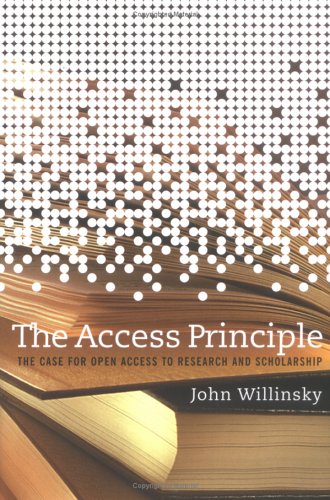John Willinsky, Distinguished Innovator in Residence, gave the keynote address for Open Access Week at Virginia Tech Thursday night in the Graduate Life Center auditorium. “What Is It About the History of Learning that Calls Out for Open Access to Research and Scholarship?” revealed not only historical aspects of scholarship in general but connections between Virginia Tech and his founding of the Public Knowledge Project.
When Virginia Tech became the first university to require electronic theses and dissertations (ETDs) in 1997, the software for presenting them online was made freely available. Willinsky used the software to post ETDs online (with their authors’ permission, of course), though he discovered that implementation was not as easy as it could have been. This concept of providing freely available software for the purpose of open dissemination of research inspired his founding of the Public Knowledge Project, which provides open source software for producing open access journals, monographs, and conference proceedings. (Today there are 5,000 journals using PKP’s Open Journal Systems, about half of them in the developing world.)
Not only is there a human right to knowledge, any knowledge claim depends on being public. To investigate the nature of knowledge we must address the concept of intellectual property, which is culturally pervasive yet rarely taught or examined in our universities. A university’s relationship to intellectual property is different due to its public or non-profit legal status, and its educational purpose affords it status in the evaluation of the fair use principles of copyright, for example. The tax exempt status of universities recognizes that they produce a different kind of property, particularly in the case of a land-grant institution like Virginia Tech. There is a social contract between society and the university.
Historically, the exchange of real property for another kind of property goes back to the monasteries. Noblemen (and women) gave land (symbolically, a chunk of turf was placed on an altar) so that they, through the monastery, could be closer to God and have a surer path to heaven (and for certainty’s sake, nobles were buried on monastery grounds– here Willinsky noted that Leland Stanford is buried on the grounds of Stanford University). But personal patronage of this kind was not lasting. So today we have democratically elected governments who, on behalf of the public, provide patronage for the advancement of humanity through land grants (the Morrill Act of 1862), tax support, and tax exemption. The knowledge produced in universities is public. The audience was deputized to spread the word.
Thanks to the University Libraries’ Event Capture Service for the video below. [Edit 2/28/14]




 John Willinsky’s The Access Principle: The Case for Open Access to Research and Scholarship (2006) was the first book published on open access (that I am aware of, anyway). I remember reading it sometime around 2008 and it’s certainly had a profound influence on my thinking about the dissemination of research.
John Willinsky’s The Access Principle: The Case for Open Access to Research and Scholarship (2006) was the first book published on open access (that I am aware of, anyway). I remember reading it sometime around 2008 and it’s certainly had a profound influence on my thinking about the dissemination of research.